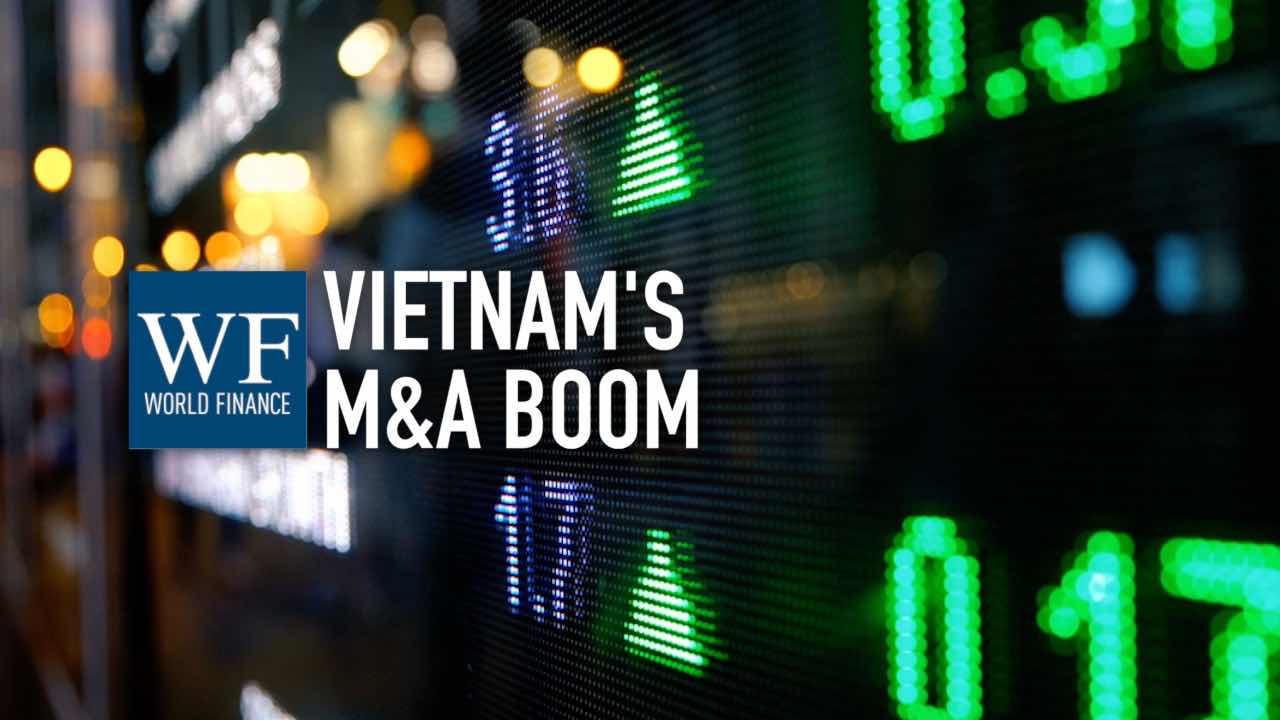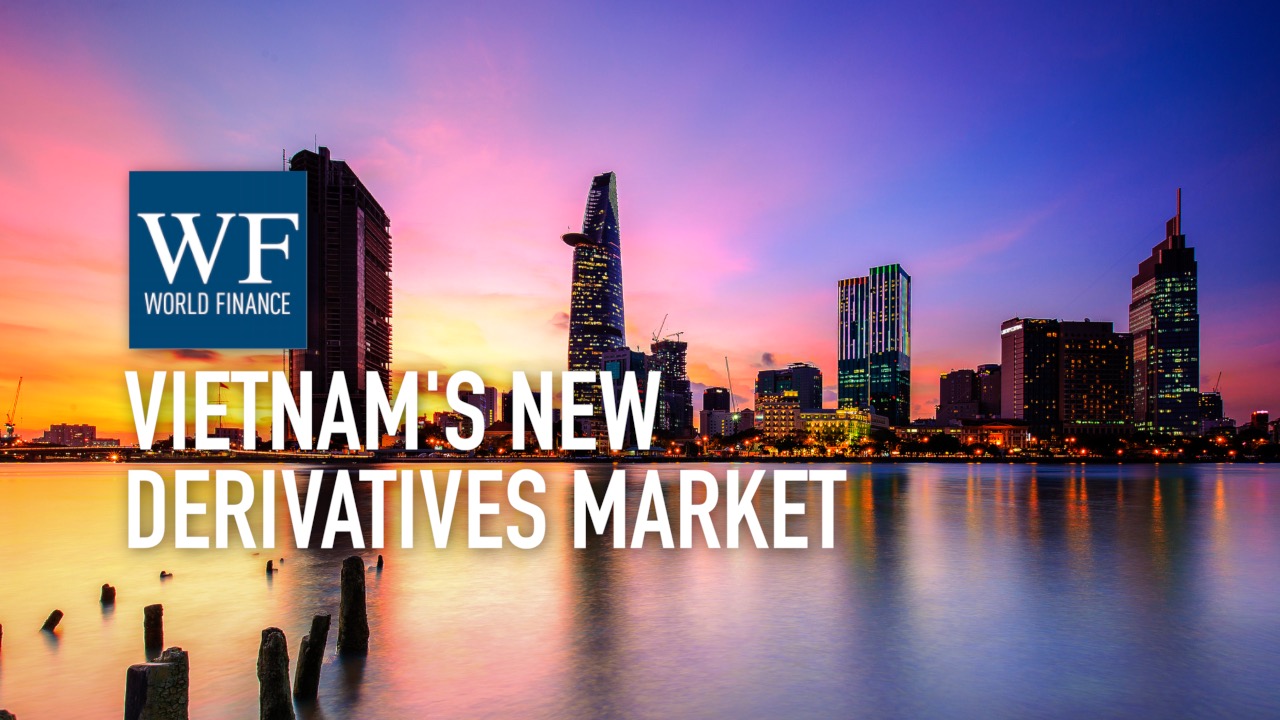Ho Chi Minh Stock Exchange on track to emerging market status by 2020-22
BIDV Securities Company CEO Đỗ Huy Hoài discusses Vietnam's upgrade prospects and the growth of foreign investments in the country
Related:
Transcript
It’s been quite a year on the Ho Chi Minh stock exchange. The first three months of 2018 saw double-digit growth, taking the exchange to record highs. But by July valuations had crashed back to 2017 levels; at the time this video was filmed, the market still hasn’t re-made any of January’s gains. Đỗ Huy Hoài is CEO of BIDV Securities Company; he discusses the prospect of the stock market being upgraded from frontier to emerging market status, the impact this would have on foreign capital inflows to Vietnam, and what makes the country an attractive investment destination. This video is mostly in Vietnamese with English subtitles.
World Finance: It’s been quite a year on the Ho Chi Ming stock exchange. The first three months of 2018 saw double-digit growth, taking the exchange to record highs. But by July valuations had crashed back to 2017 levels; at time of recording the market still hasn’t re-made any of those January gains. Đỗ Huy Hoài is CEO of BIDV Securities Company; he joins me to discuss the future of the exchange.
There is speculation that the exchange could be upgraded to emerging market status in the next few years – what needs to be done to achieve this?
Đỗ Huy Hoài: I believe that the Vietnamese government has to accomplish two fundamental missions. The first is to maintain its macroeconomic stability, and the second is to upgrade its market infrastructure.
With regard to the issue of macroeconomic stability, to date the GDP growth rate has met the National Assembly requirements, inflation remains under control, the exchange rate and interest rates are relatively stable over time, and the purchase index has increased by approximately four percent.
The second mission is to reinforce and upgrade Vietnam’s market infrastructure. The State Securities Commission is currently making amendments to the Securities Law to suit the development of the market.
In addition, the authorities in Vietnam are prepared to revise the financial reporting system of Vietnamese enterprises in accordance with international practices.
Derivative markets are already in operation. Despite being the very first move, this shows great potential and promises new products, such as warrants, a governmental ‘born future’, and the coming corporate bond market.
I believe that Vietnam will be able to meet the eligibility criteria for upgrading its stock market from a frontier market to an emerging market, following its proposed agenda from 2020 to 2022.
World Finance: If the market is upgraded, what would be the impact on the sizeable foreign capital inflows to the country?
Đỗ Huy Hoài: The proportion of Vietnam’s securities in the MSCI Frontier 100 Index is 17 percent. If its market status is upgraded from a frontier market to an emerging market, this proportion will be much greater.
It is estimated that if the index increases by one percent, approximately $3bn will be poured into the market.
The free movement of domestic capital and foreign capital will be more transparent and easier, which will make foreign investors feel secure, thus a large amount of public funds will be invested in Vietnam’s stock market in a direct manner or via M&A.
World Finance: Vietnam received record-breaking foreign direct investment in 2017 while still a frontier market. What makes the country such an attractive destination?
Đỗ Huy Hoài: There are several reasons for this. Firstly, investors have noted Vietnam’s potential and capacity to be upgraded from a frontier to an emerging market, and have thus taken a step forward.
Secondly, it cannot be denied that Vietnam’s economy is stabilising. Vietnamese enterprises have grown up, and stock quality has improved.
And as mentioned, the large-scale, long-term stability of Vietnam’s market, economy, and stock market, has been a key highlight, attracting attention from foreign investors – notably investors from Thailand and South Korea. With the advantage of being neighbouring countries, they have been able to make bold investments in Vietnam via M&A.
World Finance: How does BIDV Securities assist foreign investors in the Vietnamese market?
Đỗ Huy Hoài: To date, we have built relationships with professional investors in the US, Europe, and Asia. We have the advantage of a team of qualified staff, a strong IT infrastructure, and great insight into the Vietnamese stock market. As a result, our customers are putting their trust into BSC.
We are one of the first stock companies to participate in the derivatives market, and one of the first companies to enter the warranted market.
We are also preparing for participation in the ‘born future’ market of government bonds, and for the establishment of a corporate bond market in Vietnam.
With such preparations, we believe that the investors operating via BSC can fully be assured that their benefits are guaranteed.
World Finance: Đỗ Huy Hoà, thank you very much.
Đỗ Huy Hoài: Thank you.

 MB Securities: Vietnamese M&A boom will grow to $50bn in 2020
MB Securities: Vietnamese M&A boom will grow to $50bn in 2020 Exploring Vietnam’s new derivatives market with BIDV Securities Company
Exploring Vietnam’s new derivatives market with BIDV Securities Company
